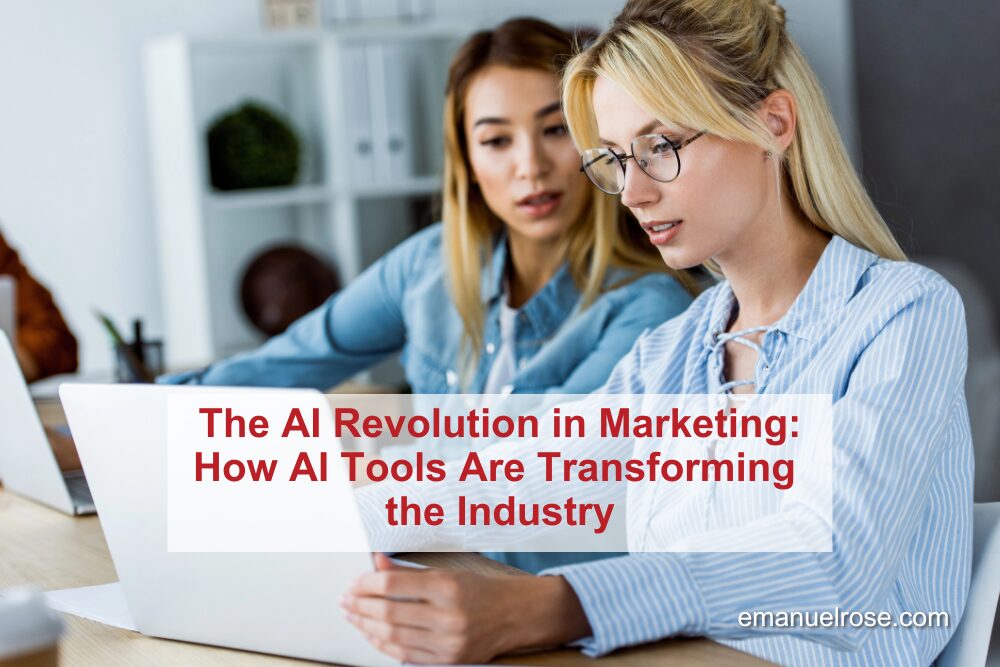In a constantly changing digital environment, businesses must adapt or risk becoming obsolete. AI tools have become essential to this adaptation, especially in the marketing sector. This blog delves into how AI, particularly generative AI models like ChatGPT, are shaping modern marketing strategies and the distinct effects these technologies have on various demographics, with a special focus on Generation Z (Gen Z).
Understanding the Adoption and Use of AI Tools Among Gen Z
AI’s rapid adoption has significantly impacted educational sectors, and this experience often translates into the workforce. Generation Z, the digital natives, leverage AI for various tasks, both educational and personal. This generation’s affinity for technology means they are early adopters of AI tools like ChatGPT, which they utilize for assistance in research, homework, and other academic endeavors.
However, this widespread adoption brings challenges, especially in academic settings. AI can readily produce answers, making it easy for students to bypass traditional learning processes. Educational institutions need to develop robust guidelines to ensure AI tools are used ethically and effectively.
Speed and Innovation: The Double-Edged Sword of AI in Marketing

The world of AI tools is constantly evolving, with new models and technologies emerging regularly. This rapid innovation presents both opportunities and challenges for marketers. The release of models like the open-source image-generation tool Flux, comparable to MidJourney, highlights the speed at which AI advancements are happening.
For marketers, staying updated with the latest tools and innovations is paramount. Traditional methods of information dissemination, such as books or conferences, become outdated quickly, making continuous learning and adaptation essential.
AI in Content Creation: Enhancing Efficiency and Creativity
One of the most significant impacts of AI in marketing is its role in content creation. Tools like DALL-E and MidJourney can generate visuals from simple text prompts, streamlining the creative process. These tools can create everything from images to blog posts based on minimal input, allowing marketers to focus on strategy and creativity rather than repetitive tasks.
Imagine an automated workflow where a single voice message could initiate an entire content creation process. This message could be transcribed, researched, turned into a blog post, complemented by images, and scheduled for social media posting—all automatically. This level of automation saves significant time and effort, empowering marketers to concentrate on high-level strategic thinking.
Accessibility and Empowerment: AI Levels the Playing Field

AI’s ability to democratize access to sophisticated tools is transformative, particularly for small businesses and individual entrepreneurs. Tools like Canva and AI-driven copywriting applications enable users to produce professional-grade marketing materials without the need for extensive resources.
This empowerment extends to at-risk individuals, breaking down high barriers to accessing advanced technology.
These developments allow small businesses and independent marketers to compete with larger entities by providing them with the tools to create high-quality content and manage comprehensive marketing strategies.
Staying Updated with AI Innovations
Given the rapid pace of AI advancements, staying informed is crucial. Various strategies can help marketers remain up-to-date with the latest tools and techniques. Following dedicated YouTube channels, subscribing to AI-focused newsletters, and participating in online communities can provide ongoing education and insights.
Training AI tools to mimic an individual’s voice and style is another effective strategy. This personalization ensures that AI-generated content maintains an authentic tone, making it indistinguishable from content created by humans.
Practical Uses and Strategies for AI in Marketing
Implementing AI effectively requires practical strategies. For instance, explicitly instructing AI not to write in a typical “AI manner” can help produce content that sounds more human. Marketers can use AI to develop integrated marketing plans by asking high-level questions that help outline strategies, from identifying ideal customers to crafting detailed messaging trees.
Automation in Marketing: Boosting Efficiency and Output
AI-driven automation has the potential to significantly increase content output. By streamlining the process from idea generation to publication, marketers can produce a high volume of quality content without the need for large teams. Tools like Perplexity, which combine generative capabilities with reliable content retrieval, ensure that the produced material is both creative and accurate.
Generative Engine Optimization (GEO): A New Frontier

Generative Engine Optimization (GEO) is emerging as a new area within marketing. While specifics are still developing, it is evident that advanced AI models will play a crucial role in providing precise optimization techniques, further enhancing marketing efforts.
AI is revolutionizing the marketing industry in unprecedented ways.
From content creation to strategic planning and enhancing accessibility, AI provides powerful tools that empower marketers at all levels. Staying updated and effectively utilizing these tools is essential for success in this rapidly advancing era of technology.
This blog highlights the transformative potential of AI in marketing, focusing on practical applications and forward-thinking strategies that can greatly enhance marketing efforts.

